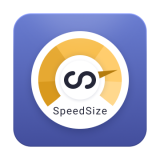An online store is a necessity for small businesses looking to thrive. Whether you’re a startup or an established small business, selecting the right e-commerce platform is crucial. Your choice can affect everything from the ease of managing your store to your customer experience, and ultimately, your bottom line.
This blog post will walk you through 8 of the best e-commerce platforms for small businesses. These platforms stand out for their features, user-friendliness, and affordability, making them ideal for entrepreneurs who want to get their businesses online quickly and efficiently.
Let’s dive into each platform to understand which is the best e-commerce website builder for small business needs, and why.
Platform | Best For | Price (Starting) | Custom. Options | Ease of Use | Scalability | Multi-Channel Selling | Trans. Fees |
|---|---|---|---|---|---|---|---|
Shopify | Ease of use and scalability | $29/month | High | Very Easy | High | Yes | Yes |
Wix | Customization flexibility | $17/month | High | Very Easy | Mod. | Yes (ltd) | No |
BigCommerce | Growing businesses | $29/month | Mod. | Mod. | Very High | Yes | No |
Squarespace | Design and branding | $23/month | Mod. | Easy | Mod. | No | No |
WooCommerce | WordPress users | Free (with WordPress) | Very High | Mod. | High | Yes (with plugins) | No |
Weebly | Budget-friendly e-commerce | Free (paid from $14/month) | Mod. | Very Easy | Low | No | Yes |
Square Online | Brick-and-mortar integration | Free (transaction fees apply) | Low | Very Easy | Low | Yes | Yes |
Ecwid | Multi-channel selling | Free (paid from €21/month) | Mod. | Easy | Mod. | Yes | No |
1. Shopify: The Go-To for Ease of Use
Why Shopify is the Best E-commerce Platform for Small Businesses
When it comes to the best e-commerce platform for small businesses, Shopify is often the first name to come to mind. Its simple, intuitive interface allows you to set up your online store in no time, even if you don’t have any technical background.
Key Features:
- Ease of Use: Shopify's user-friendly dashboard makes managing your store easy, from adding products to tracking orders.
- Mobile-Responsive Themes: Shopify offers a wide range of customizable themes, all optimized for mobile devices.
- App Integrations: With over 4,000 apps, Shopify lets you expand your store’s functionality with tools for marketing, accounting, shipping, and more.
- Customer Support: Available 24/7 via chat, email, and phone.
Shopify is perfect for entrepreneurs who need the best e-commerce website builder for small business that prioritizes ease of use, security, and scalability. Whether you’re just starting or scaling up, Shopify has you covered.
Pros:
- Extensive app marketplace
- Highly customizable
- Easy to scale as your business grows
Cons:
- Monthly fees can be high, especially when adding apps
- Limited functionality without apps
Price: Plans start at $29/month
Read More: Shopify Pricing Explained
2. Wix: The Best Choice for Customization Flexibility
Why Wix Is Ideal for Small Businesses
If design flexibility is at the top of your list, Wix is one of the best e-commerce platforms for small businesses. You get hundreds of customizable templates, making it easy to build a visually appealing website that reflects your brand identity.
Key Features:
- Drag-and-Drop Editor: Wix’s easy-to-use editor allows you to customize every aspect of your store.
- Integrated Marketing Tools: Wix offers built-in SEO, email marketing, and social media integrations to help you grow your audience.
- App Market: You can enhance your store’s functionality by integrating apps for e-commerce, customer support, and more.
- Affordable Plans: Wix offers affordable options for small businesses that don’t need advanced e-commerce features.
Pros:
- Great for beginners
- Affordable for small businesses
- Highly customizable
Cons:
- Limited scalability for growing businesses
- Some apps require extra fees
Price: Plans start at $17/month
Read More: Pros and Cons of Wix
3. BigCommerce: Best for Growing Businesses
Why BigCommerce is a Top Contender
If you're looking for the best e-commerce platform for startups that plan on scaling fast, BigCommerce is the way to go. It provides robust tools designed to handle growth, making it perfect for small businesses aiming to become mid-sized or large e-commerce stores.
Key Features:
- No Transaction Fees: BigCommerce does not charge transaction fees, allowing you to maximize your profits.
- Advanced SEO Capabilities: With built-in SEO tools, BigCommerce makes it easier for your store to rank higher in search engines.
- Multi-Channel Selling: Sell on Amazon, eBay, and social media platforms right from your BigCommerce store.
- Customizable Themes: BigCommerce offers a variety of themes designed to enhance user experience and engagement.
Pros:
- No transaction fees
- Scalable for growing businesses
- Extensive sales features
Cons:
- More complex than Shopify and Wix
- Slightly more expensive
Price: Plans start at $29/month
Read More: Why Build Your Store with BigCommerce
4. Squarespace: Best for Stunning Design and Branding
Why Squarespace Stands Out
Squarespace is often considered the best e-commerce website builder for small business owners focused on design. Known for its sleek, modern templates, this platform is ideal for creative entrepreneurs who want a visually stunning online store.
Key Features:
- Award-Winning Templates: Choose from beautifully designed templates that are mobile-responsive and fully customizable.
- Integrated Marketing Tools: Like Wix, Squarespace offers built-in tools for SEO, email marketing, and social media integration.
- Seamless User Experience: The platform is designed to provide an easy, enjoyable user experience for both business owners and customers.
- Built-In Analytics: Get insights into your store’s performance with built-in analytics that help you make informed decisions.
Pros:
- Stunning design templates
- All-in-one platform for web design, hosting, and e-commerce
- Good value for money
Cons:
- Fewer e-commerce features compared to Shopify or BigCommerce
- Limited app integrations
Price: Plans start at $23/month
Read More: Shopify vs. Squarespace
5. WooCommerce: Best for WordPress Users
Why WooCommerce is a Strong Option for WordPress Users
For small businesses already using WordPress, WooCommerce is the best e-commerce platform for small businesses looking to integrate e-commerce functionality seamlessly. As a plugin for WordPress, it transforms your existing site into a fully functional online store.
Key Features:
- Free to Use: WooCommerce is a free plugin, although additional costs for themes, hosting, and extensions may apply.
- Highly Customizable: Because it runs on WordPress, WooCommerce offers nearly limitless customization options.
- Large Community: With millions of active users, you’ll have access to a wide range of plugins, themes, and community support.
- SEO-Friendly: Since it’s built on WordPress, WooCommerce benefits from the strong SEO capabilities of the platform.
Pros:
- Free and open-source
- Full control over customization
- Ideal for WordPress users
Cons:
- Can be complex for non-technical users
- Requires additional plugins for full functionality
Price: Free (additional costs for plugins and hosting)
6. Weebly: Best for Budget-Friendly e-commerce
Why Weebly is a Solid Budget Option
Weebly is another budget-friendly option for small businesses looking to build an e-commerce website for small business. Like Wix, Weebly offers an easy-to-use drag-and-drop editor, but it’s more affordable, making it ideal for small startups with limited budgets.
Key Features:
- Drag-and-Drop Builder: Customize your store with an intuitive drag-and-drop editor.
- Mobile-Optimized: All themes are mobile-responsive, ensuring your store looks great on any device.
- Integrated Tools: Weebly includes built-in tools for email marketing and SEO to help grow your business.
- Free Plan Available: Weebly offers a free plan, though e-commerce features are limited.
Pros:
- Very affordable
- Great for beginners
- Free plan available
Cons:
- Limited customization compared to other platforms
- Fewer e-commerce features
Price: Free (paid plans start at $14/month)
7. Square Online: Best for Brick-and-Mortar Integration
Why Square Online is Great for Store Owners with a Physical Location
If you already have a brick-and-mortar business and are looking to build an e-commerce website for a small business, Square Online is the perfect solution. This platform seamlessly integrates with Square’s point-of-sale (POS) system, making it easy to sync your online and offline operations.
Key Features:
- Integrated with Square POS: Manage both your in-store and online sales from a single dashboard.
- Free Plan: Square Online offers a free plan, which is ideal for startups with limited budgets.
- Simple Setup: You can set up your store in minutes using Square’s user-friendly interface.
- Inventory Sync: Automatically sync your inventory between your physical store and your online store.
Pros:
- Ideal for businesses with a physical store
- Free plan available
- Easy to set up
Cons:
- Limited customization options
- Additional fees for advanced features
Price: Free (transaction fees apply)
8. Ecwid: Best for Selling Across Multiple Platforms
Why Ecwid is a Flexible Option for Small Businesses
Ecwid is an excellent choice if you want to sell products across multiple platforms like Facebook, Instagram, and your own website. It can be integrated with an existing website or used to build a new one, making it a flexible option for small businesses.
Key Features:
- Multi-Channel Selling: Sell on social media, marketplaces, and your website from a single platform.
- Free Plan Available: Ecwid offers a free plan that includes basic e-commerce features.
- Easy Integration: Ecwid can be added to any website platform, including WordPress, Wix, and Squarespace.
- Mobile-Optimized: All stores are mobile-friendly, ensuring a great user experience on any device.
Pros:
- Flexible integration with existing websites
- Free plan available
- Multi-channel selling
Cons:
- Limited features on the free plan
- Fewer customization options than in other platforms
Price: Free (paid plans start at €21/month)
Types of E-commerce Platforms
E-commerce platforms can generally be divided into three main types:
1. Hosted E-commerce Platforms
Hosted platforms provide a complete, all-in-one solution. They host your website on their servers and offer built-in tools to manage your store. Examples include Shopify, Wix, and BigCommerce. These are ideal for small businesses that want a quick setup with minimal technical involvement.
Pros:
- Easy to use and set up
- All maintenance and updates are handled by the platform
- Offers hosting, security, and built-in features like payments and SEO
Cons:
- Limited customization compared to self-hosted platforms
- Higher monthly fees, especially with premium plans and add-ons
2. Self-hosted E-commerce Platforms
Self-hosted platforms offer more control over your website. You’ll need to purchase hosting separately and install the e-commerce platform yourself. The most common self-hosted platform is WooCommerce, a plugin for WordPress.
Pros:
- Full control over customization and functionality
- Lower upfront costs for the platform (e.g., WooCommerce is free)
- You can choose your hosting provider, security measures, and tools
Cons:
- More technical knowledge required
- Maintenance, updates, and security are your responsibility
- May require third-party plugins to match the features of hosted platforms
3. SaaS (Software-as-a-Service) E-commerce Platforms
SaaS platforms are similar to hosted platforms but offer more flexibility and scalability. Platforms like Shopify and BigCommerce fall into this category. These are best for businesses looking to scale without worrying about infrastructure.
Pros:
- Scalable and capable of handling high growth
- Regular updates and new features are added automatically
- Offers integrations with other software like CRM, accounting, and shipping tools
Cons:
- Monthly or yearly subscription fees can add up
- Less control over your store’s hosting and back-end infrastructure
Factors to Consider When Choosing an E-commerce Platform
When selecting the best e-commerce platform for startups or established small businesses, consider the following factors:
- Ease of Use: If you’re a solo entrepreneur or have limited technical knowledge, choose a platform that is user-friendly and easy to manage.
- Customization Options: Depending on your branding needs, you may need a platform that allows for significant customization.
- Budget: Some platforms have monthly fees, transaction fees, and additional costs for themes, plugins, or integrations. Choose a platform that fits within your budget.
- Scalability: Ensure that your chosen platform can grow with your business. Consider features that will support growth, such as advanced SEO tools, multi-channel selling, and inventory management.
- Support and Community: Choose a platform with a strong support system—either from the provider or from an active community of users. This can be crucial when you encounter technical challenges.
- Payment Gateways: Different platforms offer different payment options. Ensure the platform you choose supports your preferred payment methods, including credit cards, PayPal, or local payment methods.
Finding the Best e-commerce Platform for Your Small Business
Choosing the best e-commerce platform for small business depends on your unique needs. Shopify is an excellent all-around choice for ease of use and scalability. Wix and Squarespace shine when it comes to design flexibility, while BigCommerce is great for businesses expecting rapid growth. WooCommerce offers endless customization for WordPress users, while Weebly and Square Online cater to those with tighter budgets. Finally, Ecwid is perfect for multi-channel sellers.
By evaluating the strengths and weaknesses of each platform, you can select the best e-commerce website builder for small businesses that meets your specific goals, whether you're looking for simplicity, scalability, or design capabilities.
Whichever platform you choose, remember that your e-commerce website is the face of your brand. Investing in the right solution will help you attract more customers, increase sales, and grow your business over time.
Frequently asked questions
For small business owners with little to no technical experience, Shopify and Wix are the best options. They offer drag-and-drop features, intuitive dashboards, and 24/7 customer support, making it easy to set up and manage your store.
Weebly, WooCommerce (for WordPress users), and Square Online are excellent budget-friendly options. They provide affordable plans and basic features that are suitable for startups and small businesses.
Yes, platforms like Square Online and Shopify offer POS (Point of Sale) integration, allowing you to sync your online and offline sales, inventory, and customer data in one place.
WooCommerce, being a self-hosted solution, offers the most flexibility in terms of customization. It works with WordPress, and you can choose from thousands of themes and plugins to create a unique store. Shopify also offers customization options, but it may require hiring a developer for advanced customizations.
The cost of building an e-commerce website varies depending on the platform. Hosted solutions like Shopify and Wix start around $20–$30 per month, but you may need to pay extra for premium themes, plugins, or additional features. Self-hosted platforms like WooCommerce are free, but you’ll need to pay for hosting, domain names, and potentially premium themes or extensions.
BigCommerce and Ecwid are excellent platforms for multi-channel selling. They allow you to sell on various platforms such as Amazon, eBay, Instagram, and Facebook, all from a single dashboard.
No, most modern e-commerce platforms are designed for non-technical users. Hosted platforms like Shopify, Wix, and Squarespace provide drag-and-drop functionality, so you don’t need to write any code. However, for advanced customizations, coding knowledge may be helpful, especially with WooCommerce.
BigCommerce and WooCommerce are great choices for SEO due to their advanced built-in SEO tools and flexibility. These platforms allow you to control meta descriptions, URLs, and more to improve your store’s search engine rankings.

























